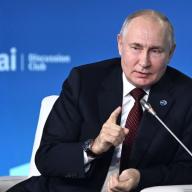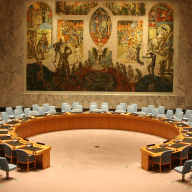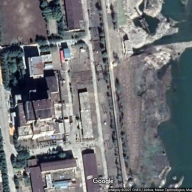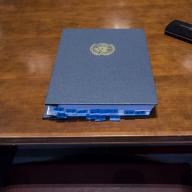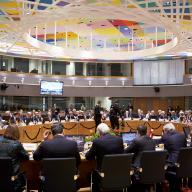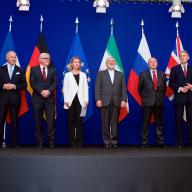Expert Comments
Russia’s potential withdrawal from the Comprehensive Nuclear-Test-Ban Treaty underlines the urgent arms control problem
The State Duma, the Russian Parliament, will vote this week whether to revoke Russia’s ratification of the 1996 Comprehensive Nuclear-Test-Ban Treaty (CTBT).
Russia’s ‘nyet’ does not mean climate security is off the Security Council agenda
On Monday, 13 December, Russia used its veto in the United Nations Security Council to block a thematic resolution on climate change and security. While the draft resolution contained specific actions, its main purpose was symbolic: to put the security implications of climate change firmly on the Security Council’s agenda.
Implications of the reported new activity at North Korea’s Yongbyon nuclear complex
The International Atomic Energy Agency (IAEA) reported on Friday its conclusion that the Democratic People’s Republic of Korea (North Korea) had resumed plutonium production at its nuclear reactor in Yongbyon in early July this year.
Ethiopia’s crisis runs deeper than Tigray
International condemnation of the humanitarian disaster unfolding in Ethiopia’s northern region is intensifying as the scale of the emergency becomes clearer. However, the conflict in Tigray is one part of a broader political crisis in Ethiopia, where elections take place on Monday (21 June).
The new EU peace mediation strategy: A step in the right direction on climate issues
With two new documents, the European Union (EU) has officially recognized the relevance of climate change to peace mediation.
The 50th ratification of the Treaty on the Prohibition of Nuclear Weapons
Yesterday Honduras became the 50th state to ratify or accede to the 2017 Treaty on the Prohibition of Nuclear Weapons (TPNW), meaning that the treaty will enter into force on 22 January 2021.
Escalating violence in Nagorno-Karabakh: Local solutions offer the main hope
While details remain scarce, the fighting that has erupted between Armenia and Azerbaijan appears to be more intense than the skirmishes that killed at least a dozen people in the summer of 2020. At the time of writing, roughly 100 people, both civilians and military personnel, have been killed since Sunday, and fighting continues.
The Belarus election: A challenge to stability and security in Northern Europe
This SIPRI Expert Comment argues for a restart to dialogue on improving regional security and cooperation to the benefit of the Belarusian people and European security more broadly.
European Union–Eastern Partnership relations: Future opportunities
In 2019, when the European Union (EU) and six countries to the east of the EU (Armenia, Azerbaijan, Belarus, Georgia, Moldova and Ukraine) marked the 10th anniversary of their Eastern Partnership (EaP), foreign ministers underlined common work on trade, visa liberalization, economic development and human rights that had been encouraged by (or through) the partnership.
The US withdrawal from the Iran deal: One year on
On 8 May last year, US President Donald J. Trump announced that the United States would pull out of the Joint Comprehensive Plan of Action (JCPOA), which sets limits on Iran’s nuclear programme to ensure that it cannot produce nuclear weapons. Despite the US withdrawal, the JCPOA remains in force; it is a multilateral agreement to which seven of the original eight parties still adhere.
